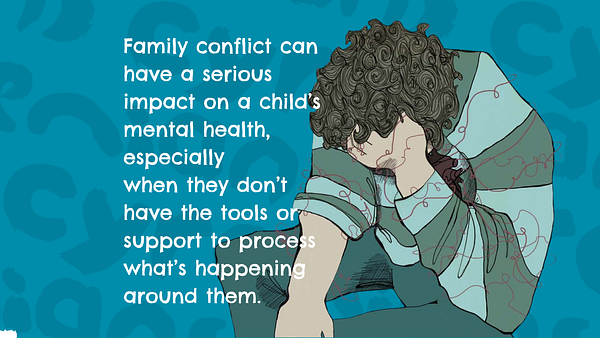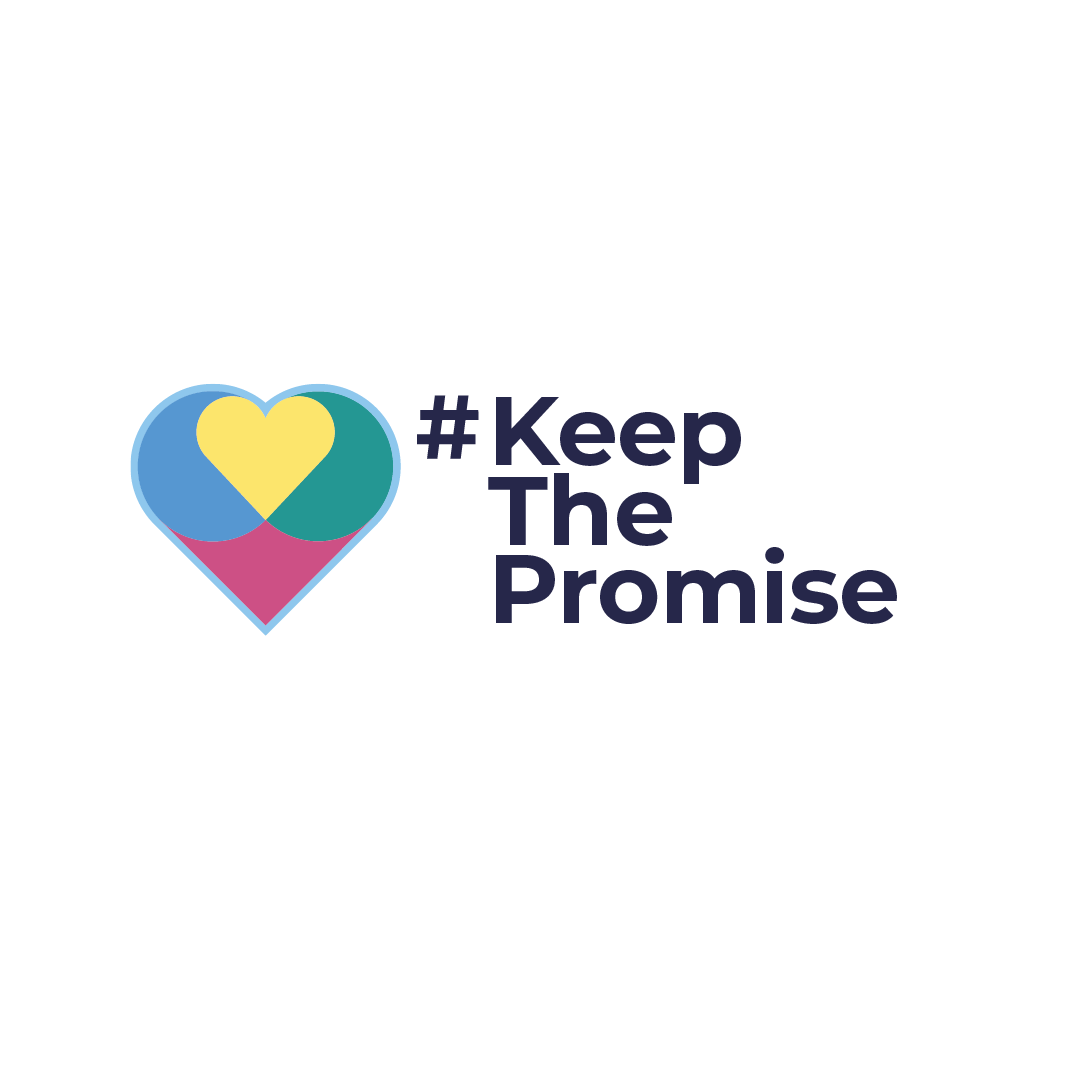Declan's Story
Declan recently joined our sister service Mediation and Support as a Family Outreach Worker. It's a role he's well suited for; in addition to his academic achievements and research, he was as a young person fostered, moving from a chaotic birth family home to a new family. In this blog, he writes about his experience of conflict resolution as someone who is care-experienced.

As a Care Experienced individual who entered the education system late – missing the foundational first three years of primary school where essential skills like reading, writing, counting, and communication are typically developed – I’ve spent much of my academic journey playing catch-up.
Despite early setbacks, I’ve worked hard to overcome barriers, ultimately achieving a master’s degree. As a child, I couldn’t have imagined completing such a journey. Care Experienced Young People (CEYP) are often stereotyped and labelled as underachievers, with only a small percentage progressing to higher education.
Today, I work as a Family Outreach Worker for Cyrenians, using my experience to support individuals and families who, like myself at one point, face life’s challenges with limited support. I help them realise that their story doesn't have to be defined by where it started.
What is Conflict?
Because of my background, family conflict means more than just arguments or disagreements; it represents the deep emotional struggles that surface when trust, safety, or love feel uncertain or broken.
In my birth family, conflict was often rooted in the devastating impact of drug and substance misuse. It wasn’t just about raised voices or silence; it was about the unpredictability that came when addiction took priority over stability, care, or connection. That environment blurred the lines between love and survival, turning home into a place of confusion and emotional neglect rather than a comfort safe place.
When I entered foster care, I was introduced to a different kind of conflict, one that came not from chaos but from adjustment. Navigating unfamiliar routines, adapting to new expectations, and building relationships with people I hadn’t chosen brought their own emotional weight. It was a quiet kind of conflict: learning how to trust again, figuring out where I fit in, and reconciling the past with a new version of family.
The contrast between the two families forced me to question what ‘family’ really meant. It taught me that conflict, while painful, can also be a path to self-awareness. It can test our sense of belonging, but it can also reshape and strengthen our identity when we begin to define love, connection, and home for ourselves.
Family conflict can arise from many different factors: stress, misunderstandings, unmet needs, or unresolved trauma. It often looks different in every home. In my birth family, the root of conflict was deeply tied to substance misuse. As a child, I didn’t fully understand why things felt so unstable, or why love from my parents sometimes felt conditional or distant. I didn’t yet realise that the choices my parents made, choices influenced by addiction were not reflections of my worth, but symptoms of their own life struggles. Still, that didn’t stop me from asking the painful questions:
Why couldn’t they care for me?
Why did they make those choices?
That silence, that lack of answers, created a lot of confusion, anger, and sadness that I didn’t yet have the tools to understand.
Family Conflict and Foster Care
When I entered foster care, conflict took a different shape. It wasn’t loud or chaotic in the same way, it was quieter but just as heavy. I struggled with the idea that these new people were supposed to care for me. I couldn’t help but feel they were trying to replace my birth parents, and that belief built a barrier between us. I often pushed them away, acting out the pain I didn’t know how to voice. Looking back, I see that they were only trying to help me, but at the time, all I could feel was the loss of the family I once had and the fear of trusting a new one.
Growing up in care, I didn’t understand the system or why certain decisions were made. Not knowing why I couldn’t go home led to a lot of internal conflict and emotional tension, which I carried into every relationship around me.
I now recognise that every family situation is very complex and is layered with its own traumas and hurt. My experiences taught me that conflict isn’t always about yelling or fighting – it can be about silence, distance, and the questions that go unanswered. But over time, I also learned that conflict can be seen as a mirror. It can show us where the pain lies, and if we’re open to it, it can help us grow.
Resolving Conflict
Family conflict can be resolved through open and honest communication, where everyone feels heard and respected. This often requires empathy, patience, and a willingness to understand different perspectives. In some cases, support from professionals – like social workers, family therapists, or mediators who can help families work through deeper issues. Most importantly, resolution comes when there’s a shared commitment to healing, rebuilding trust, and moving forward together.
Family conflict can have a serious impact on a child’s mental health, especially when they don’t have the tools or support to process what’s happening around them. For me, the constant tension and emotional confusion built up inside, and I didn’t know how to express it in a healthy way. At a young age, I was sent to anger management because I struggled to control my emotions. I would punch walls until my hands bled, not out of aggression, but from feeling overwhelmed, unheard, and powerless.
As well as this I’d take a lot of anger out on my foster parents verbally who were just trying to do their best and help my overall development. The emotional pain became physical, and it took time, support, and self-reflection to understand that my reactions were a result of deeper wounds caused by instability and unresolved conflict.
Family conflict can be resolved in many ways, such as through open communication, mutual respect, and a willingness to truly listen and understand each other’s perspectives. It’s important to create a safe space where everyone feels heard and without any fear of judgment or punishment.
Support from professionals like therapists, mediators, or social workers can also play a key role in helping families work through deeper issues and develop healthier ways to connect and communicate. Sometimes, time and space are also necessary, giving emotions a chance to settle before healing can begin.
Two Families
In my birth family, that kind of open communication didn’t exist. There was a lot of silence, confusion, and questions that went unanswered. Conversations often felt one-sided – or never happened at all, which left me feeling misunderstood and emotionally distant at a young age.
On the other hand, my foster family approached things differently. While it wasn’t always easy and perfect, there was always an effort to talk things through. They gave space for me to express how I felt, even when I didn’t know how to say it properly. That steady presence, and the willingness to keep communicating, made a positive difference on me.
In the end, resolution can become possible when there’s a shared commitment to healing, rebuilding trust, and putting the well-being of everyone, especially children at the heart of the process. I’ve come to learn that communication doesn't fix everything, but it opens doors to understanding, which is where real change begins.
Causes of Conflict
For me I feel one of the biggest causes of conflict within families is poor communication. When family members struggle to express their feelings, needs, or frustrations clearly or don't feel heard or understood, it can lead to misunderstandings, resentment, and emotional distance.
Other major contributors can include financial stress, differences in values or parenting styles, mental health challenges, and unresolved trauma that hasn’t been treated appropriately.
In care-experienced families, conflict can also stem from instability, lack of trust, or confusion around roles and decisions, especially when children aren’t given explanations or support to understand what’s happening behind closed doors. Ultimately, it’s often a combination of these factors that causes tensions to build and spiral out of control.
Conclusion
Family conflict is a normal part of life. Every family faces disagreements, tension, and emotional challenges - it's part of being human and living closely with others. What truly matters is how families choose to handle that conflict, whether they avoid it and let it grow, or face it with honesty, empathy, and a willingness to work through the problems together.
For care-experienced individuals like myself, the weight of conflict can feel a lot heavier. In my birth family, conflict often went unspoken. There was very little communication, and the silence left me feeling confused, hurt, and alone. Without the space to talk about what was going wrong, things only got harder.
In contrast, my foster family showed me what it could look like to face conflict differently. Even when emotions were high, there was a consistent effort to talk, to listen, and to understand. That didn’t make everything perfect, but it made healing feel more possible and put me at ease.
Through both experiences, I’ve learned that conflict doesn’t mean a family is broken; it just means there’s room to grow, to repair, and to better understand one another. With the right support and care, even the most difficult relationships can begin to mend.





